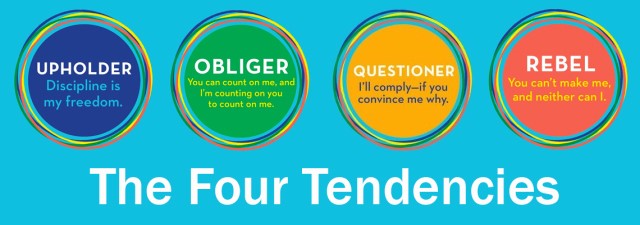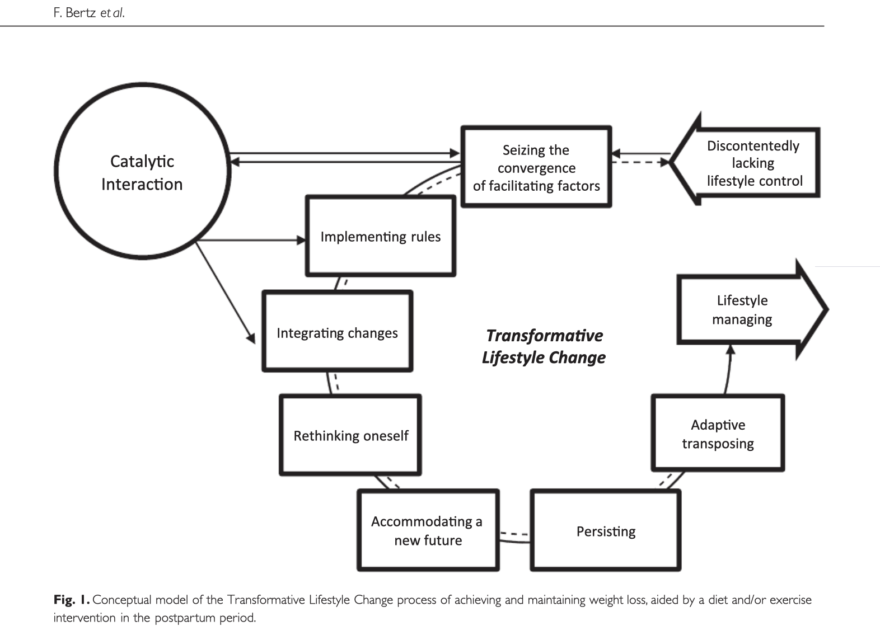
What if you could increase your chances of following through with something you planned to do by 95%, or if you reduced the likelihood that you’ll quit down to a measly 5%?
Accountability is a huge reason health coaching works. I hear things like this from my clients all the time: “Just knowing that I’m going to see you helps me make better choices and stick to my healthy habits.”
Accountability could be the most scientifically backed method for improving human behavior.
Studies routinely demonstrate that accountability enhances people’s results in their health and weight loss endeavors, as stated in our previous article on leveraging accountability to boost coaching outcomes. In today’s article, let’s take a look at the mounting evidence that demonstrates 15 reasons why accountability makes health coaching so effective.
1. When it comes to improving one’s health and wellness, people usually struggle in the initial stages of change when they’re accountable only to themselves.
In an isolated context like pursuing a goal by yourself, motivation easily slips. As a result, people lack consistency and follow-through. Health coaches help their clients explore progress as part of the accountability aspect of coaching, which provides empowering insights and structure to support people during the behavior change journey, resulting in greater efficacy and consistency towards a desired outcome. (Moore, Coaching Psychology Manual)
2. Health coaches are built-in accountability buddies who care about your health pursuits just as much as you do.
Some coaches also offer a community aspect that allows you to be around more people who are pursuing similar goals. A 2015 study published in JAMA looked at 3,722 cohabiting couples to analyze how men and women with unhealthy behaviors (smoking, physical inactivity, overweight) are influenced by their partner’s behavior in the same domain. Couples going through changes together saw about 40% increased likelihood of quitting smoking or becoming physically active, and double the likelihood of losing weight (compared to those whose partner was not pursuing the healthy change).
3. Health coaches prepare clients to take action.
This is important because, like business leader Gordon Tredgold said, “The best way to get people to accept accountability is to set them up to be successful.” Adequately trained and certified health coaches understand a client’s current stage of readiness, and they consider what information, resources, conversations, and environmental modifications they need to feel efficacious—to believe in their chances of success before attempting to take action.
4. Coaches help clients measure progress.
As stated by habits expert Gretchen Rubin, “Self-measurement brings self-awareness, and self-awareness strengthens our self-control.” Most people would not practice self-measurement without external accountability (like what a coach provides).
5. Health coaches help increase the likelihood of achieving your goal due to many elements within the coaching process, such as:
- Eliciting client-defined goals (resulting in a 25% increase)
- Asking for commitment about when/where/how you’ll do the actions necessary to achieve your goal (50% increase)
- Your coach gives you a person to commit your goal or behaviors to (65% increase)
- Coaching provides ongoing accountability in “follow-up” appointments—with the person they’ve committed to—and boom! A 95% increase in the likelihood they will succeed. (AFCPE.org and research from The Association for Talent Development)
6. The determination that drives motivation and optimal performance is naturally activated and sustained by three things that coaching provides:
(Self-Determination Theory by Deci and Ryan, 2000)
- Autonomy and client-defined goals
- Competence (AKA self-efficacy)
- Accountability or relatedness. This is the need for feeling connection and a sense of belonging, which provides a strong base for pursuing what’s important to an individual.
7. Coaches help ease the goal pursuit process.
Compared to going at it alone, clients notice a reduced effort required to figuring out the goal process with a coach’s help. They also experience increased momentum and motivation needed to reach a goal.
8. Most people need accountability, especially the external kind.
According to millions of survey results—conducted by habits expert and author of The Four Tendencies, Gretchen Rubin—Obliger personality types make up around 40% of the population—and they thrive on external accountability because it’s difficult for them to self motivate. Questioner and Obliger types—which together represent around 64% of the population—are the most likely to hire a health coach, and they’re the people whose success relies mostly on the information and accountability a coach provides.
9. Whether by phone, video calls, email, or in person; coaching provides a key accountability aspect known as social presence (the presence of another human being).
This type of “human support enhances goal adherence to a significantly greater degree” compared to automated systems, AI-generated health coaching prompts, or programs that lack personal interaction.
10. Coaching helps people realize they need to take ownership over their health.
A small pilot study showing the importance of patient accountability shared that patients working with a coach succeeded because they recognized they needed to play an active role in managing and improving their own health, sharing responsibility through the coaching process. One patient said, “It keeps me honest,” expressing appreciation for the bi-weekly check-ins with their coach. “If I know I’m working with someone that has access to my information and my dietary habits, then that means I’m going to try and stay within my good dietary habits.”
11. Recurring appointments and the structure of sessions increases accountability.
This study titled The Process of Patient Empowerment in Integrative Health Coaching explains that the structure of sessions alone—like discussing or reviewing goals, and scheduling the next appointment—encourages patients to be accountable to their goals. “Expectation of the next appointment encouraged accountability on the client’s part to follow through on the goals set in the session.”
12. Coaches provide energizing interactions and help clients progress through phases of transformative change.
In this study on Transformative Lifestyle Change (for postpartum weight loss), they demonstrate that, in order to overcome the initial barriers to weight loss, the women needed “energizing interaction” with a care provider, which “depended on individualized, concrete, specific and useful information, and an emotional bond through joint commitment, trust and accountability.” Then, through a series of action-oriented phases within the Transformative Lifestyle Change model (above), women who were guided through these phases—such as implementing rules instead of relying on willpower, and rethinking their self image—were successful in weight loss, in contrast with the women who did not progress through these phases.
13. Coaching increases client perceived self-efficacy which increases action.
A 2019 meta-analysis on motivation techniques for health behavior change showed that health professionals can increase clients’ perceived competence (or efficacy) regarding health behaviors, and that one-on-one interventions like health coaching are especially effective.
14. “When a coach holds a client accountable, they are really helping the client to be accountable to themselves.”
This can be one of the biggest determiners of long-term success in your clients’ lives—learning to be accountable to themselves, or, to value accountability—so that with or without the coach in their lives, they believe they’re capable of lasting lifestyle change. (Arloski, Wellness Coaching For Lasting Lifestyle Change)
15. Regular meetings, feedback, and social support are especially impactful.
A study titled Necessary Components for Lifestyle Modification Interventions to Reduce Diabetes Risk emphasized that feedback and social support are of utmost importance when it comes to weight loss and diabetes risk reduction. Regular meetings [coaching sessions for lifestyle intervention] were especially impactful…
“Weekly contact during the first several months of intervention, followed by less frequent but regular contact, appears necessary for participants to adopt and enact self-regulatory skills such as the self-monitoring diet, weight, and physical activity and the problem solving of common barriers that impede sustained weight loss…the interactive process of feedback and social support is crucial for skill development and sustained weight loss.”
When clients know that their coach remembers their commitments, it improves their ability to follow through. This positive accountability helps clients stay focused on what’s most important to them. In conclusion, it’s indisputable in our eyes: the accountability aspect alone makes health coaching a wise investment, and that’s just one aspect of what makes health coaching so effective.





